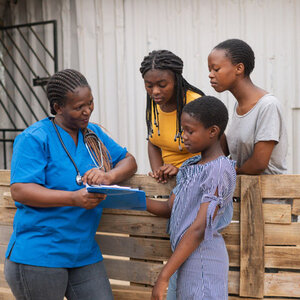Gates, CIFF, Pfizer, BD expand commitment for contraceptives

The Bill & Melinda Gates Foundation, Children’s Investment Fund Foundation (CIFF), Pfizer, and Becton, Dickinson & Company (BD) have announced an expanded partnership to enable greater access to injectable contraceptives for women in low- and lower-middle-income countries.
The expanded agreement through 2030 aims to deliver more than 320 million doses of an injectable contraceptive developed by Pfizer, with previously guaranteed pricing of $0.85 per unit to be maintained for public-sector purchasers in low- and lower-middle-income countries. Building on an agreement first established in 2014, Pfizer will increase manufacturing capacity by 65 percent, and partners will increase the number of countries covered from 69 to 92, to include all low- and lower-middle-income countries as well as several upper-middle income countries as defined by the World Bank.
“Too many women stop using family planning because they’re dissatisfied with their method. Discreet, long-acting contraceptive methods can help address barriers that prevent many women from using contraceptives,” said Gates Foundation director of women’s health innovations Ru Cheng. “The expansion of this innovative partnership will support access for women and adolescents living in low- and lower-income countries to the innovative family planning products they want and need to take charge of their health, lives, and futures.”
“By extending access to the self-injectable contraceptive, this partnership is delivering one of the most important innovations in family planning that can benefit the millions of women and girls who, today, lack access to contraception meeting the highest quality standards,” said Miles Kemplay, executive director for sexual and reproductive health and rights at CIFF. This renewed ambition reflects our determination that all individuals realize their fundamental right to decide when and whether to start a family, to help keep them and their families healthy, and accelerate progress towards gender equality.”
(Photo credit: Getty Images/wilpunt)







